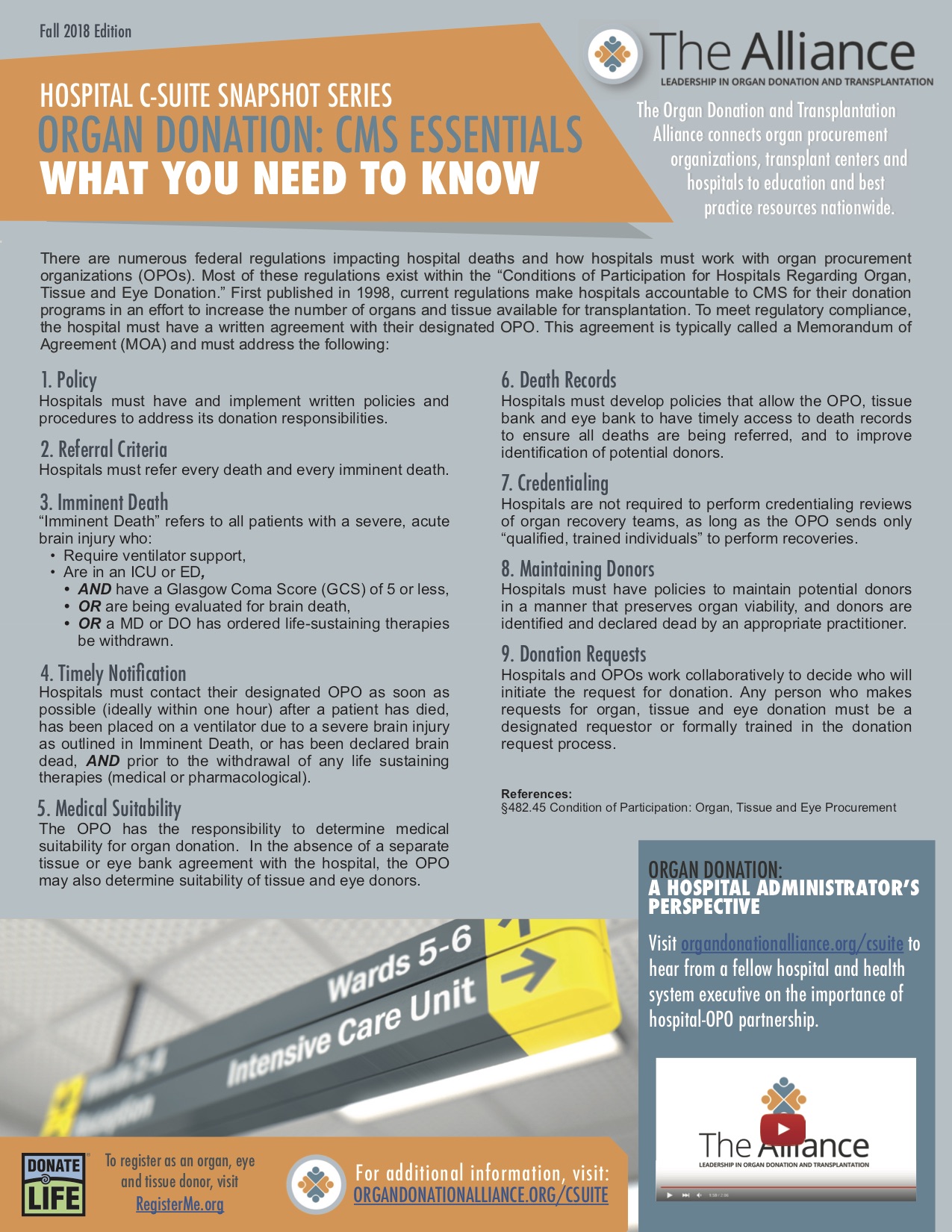There are numerous federal regulations impacting hospital deaths and how hospitals must work with organ procurement organizations (OPOs). Most of these regulations exist within the “Conditions of Participation for Hospitals Regarding Organ, Tissue and Eye Donation.” First published in 1998, current regulations make hospitals accountable to CMS for their donation programs in an effort to increase the number of organs and tissue available for transplantation. To meet regulatory compliance, the hospital must have a written agreement with their designated OPO. This agreement is typically called a Memorandum of Agreement (MOA) and must address the following:
1. Policy
Hospitals must have and implement written policies and procedures to address its donation responsibilities.
2. Referral Criteria
Hospitals must refer every death and every imminent death.
3. Imminent Death
“Imminent Death” refers to all patients with a severe, acute brain injury who:
- Require ventilator support,
- Are in an ICU or ED,
- AND have a Glasgow Coma Score (GCS) of 5 or less,
- OR are being evaluated for brain death,
- OR a MD or DO has ordered life-sustaining therapies be withdrawn.
4. Timely Notification
Hospitals must contact their designated OPO as soon as possible (ideally within one hour) after a patient has died, has been placed on a ventilator due to a severe brain injury as outlined in Imminent Death, or has been declared brain dead, AND prior to the withdrawal of any life sustaining therapies (medical or pharmacological).
5. Medical Suitability
The OPO has the responsibility to determine medical suitability for organ donation. In the absence of a separate tissue or eye bank agreement with the hospital, the OP
6. Death Records
Hospitals must develop policies that allow the OPO, tissue bank and eye bank to have timely access to death records to ensure all deaths are being referred, and to improve identification of potential donors.
7. Credentialing Hospitals
Hospitals are not required to perform credentialing reviews of organ recovery teams, as long as the OPO sends only “qualified, trained individuals” to perform recoveries.
8. MAINTAINING DONORS
Hospitals must have policies to maintain potential donors in a manner that preserves organ viability, and donors are identified and declared dead by an appropriate practitioner.
9. Donation Requests
Hospitals and OPOs work collaboratively to decide who will initiate the request for donation. Any person who makes requests for organ, tissue and eye donation must be a designated requestor or formally trained in the donation request process







